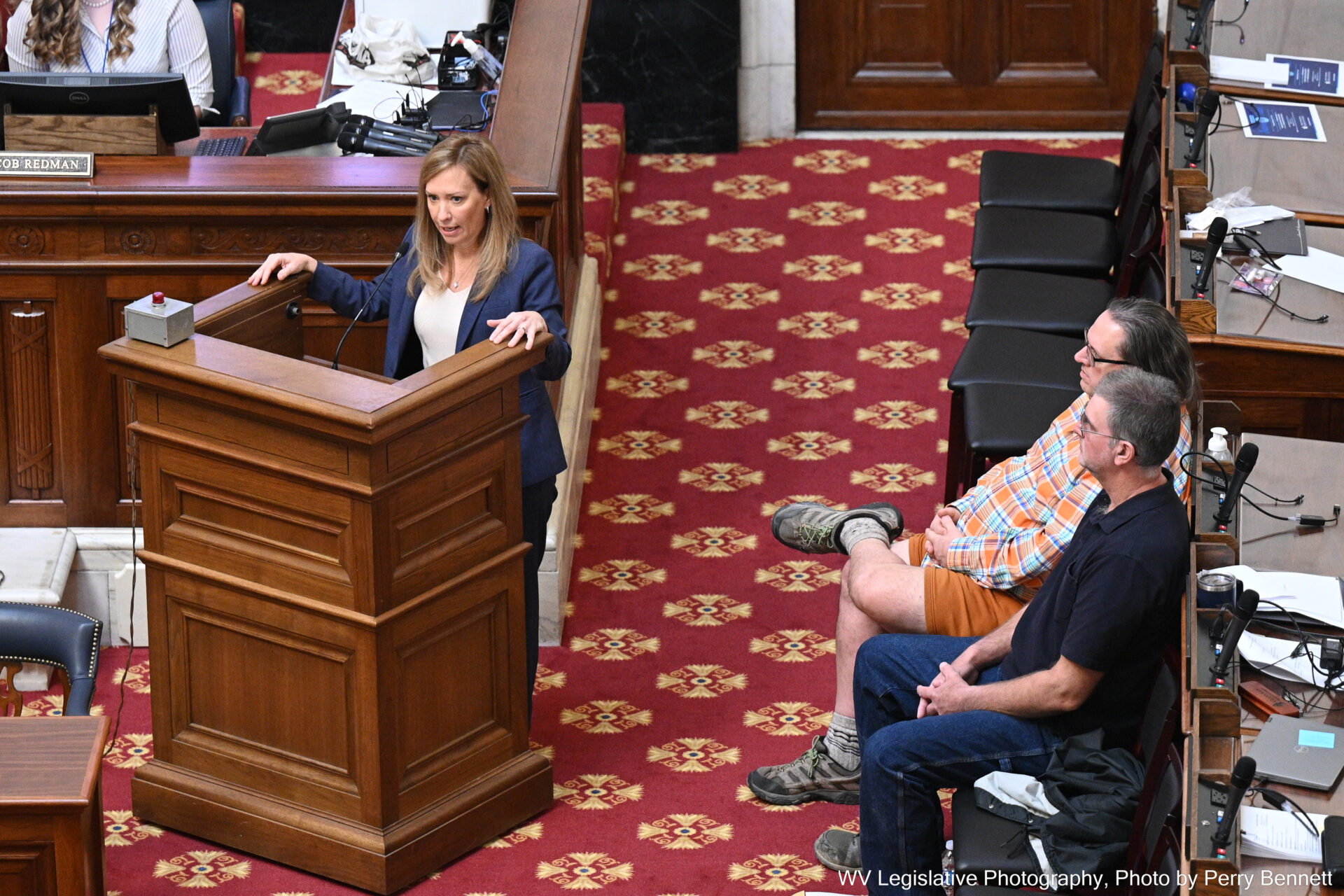The House of Delegates held a public hearing on a bill that would remove a sunset clause from the current oil and gas personal property tax assessment.
A sunset clause is a note in the bill that gives it an expiration date, unless other legislative action is taken to extend the bill.
House Bill 2581 in the 2021 session created the formula for how gas operators and property owners are taxed. The bill had a sunset clause, which comes due in July of 2025
House Bill 4850 would remove that sunset clause from the bill, making the tax formula permanent.
Del. Vernon Criss, R-Wood, said the bill would help create tax predictability for landowners and well operators.
“If we do not do this, then there will be no tax collected by the counties,” Criss said. “That is how the law is set up now. So the sunset clause needs to be taken off so that the counties can continue to collect their personal property tax on oil and gas in those counties.”
However, landowners taxed by this bill gathered at the Senate to express opposition.
They said that the 2021 bill taxes them unfairly and lacks transparency.
Scott Sondo receives royalties for land he owns that has a well on it.
“Now, one of the major problems is there’s no transparency in the industry,” Sondo said. “So they (well operators) could actually sell the products for a higher price. Tell me, they sell them for a lower price.”
He said that part of the formula for what he is taxed on is based on the prices that the gas actually sold for. The gas operators submit that information to the state but landowners like Sondo never know what that number is.
“When the operators turn these numbers in, they’re used to calculate my boundaries, well, we just would like to know what that value is. And so far, we’ve not been successful in getting that,” Sondo said.
He said, after taxes, landowners barely have enough to pay the taxes from the royalties they are paid by well operators for the use of their land.
The code also has proven to be complicated for the state Tax Division. It has come under scrutiny since the tax code was passed in 2021 for things like providing incorrect assessments and then taking so long to get the correct assessment back to property owners that they don’t have time to appeal the assessment.
